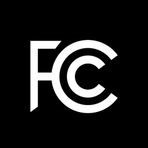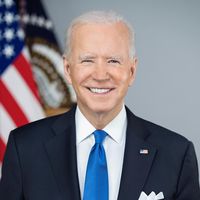The Paradox of Free Speech: Brendan Carr's Censorship Dilemma
January 29, 2025, 4:35 am

Location: United States, District of Columbia, Washington
Employees: 1001-5000
Founded date: 1934
Total raised: $1.43B

Location: United States, District of Columbia, Washington
Employees: 1001-5000
Total raised: $500K
In the ever-evolving landscape of American politics, the concept of free speech has become a battleground. At the center of this conflict is Brendan Carr, the newly appointed chair of the Federal Communications Commission (FCC). His actions have sparked a fierce debate about the true meaning of free speech in the digital age. Carr, once heralded as a champion of free expression, now stands accused of wielding censorship like a sword, undermining the very principles he was meant to uphold.
The backdrop of this drama is a recent executive order signed by former President Donald Trump. This order, framed as a restoration of free speech, has been met with skepticism. Critics argue that it is a smokescreen for a broader agenda of silencing dissent. The irony is palpable: a government official tasked with protecting free speech appears to be engaging in actions that threaten it.
Carr's first moves as FCC chair have raised eyebrows. Almost immediately after the executive order, he reopened investigations into local TV stations. These investigations, critics claim, target outlets that aired content deemed unfavorable to Trump. This is not merely a matter of political bias; it raises fundamental questions about the role of government in regulating speech.
The FCC's history is fraught with controversy. The agency has long been a gatekeeper of communication, balancing the interests of the public with the rights of broadcasters. Yet, Carr's actions suggest a shift towards a more partisan approach. By reopening investigations based on complaints from right-wing groups, he appears to be selectively enforcing regulations. This selective enforcement undermines the principle of equal treatment under the law.
The complaints themselves are questionable. They range from allegations of violating the Equal Time rule to demands for unedited transcripts of interviews. These requests, critics argue, are not just misguided; they are unconstitutional. The First Amendment protects editorial discretion, allowing news organizations to determine how they present information. Carr's willingness to entertain these complaints raises alarms about government overreach.
The chilling effect of Carr's actions cannot be overstated. News outlets may think twice before airing content critical of Trump or his allies. The message is clear: dissent will not be tolerated. This is a dangerous precedent. A healthy democracy relies on a free and independent press. When government officials use their power to intimidate media organizations, the very fabric of democracy is at risk.
The hypocrisy of the situation is striking. The same individuals who champion free speech in theory are now silent in the face of Carr's actions. They claim to support the First Amendment, yet they turn a blind eye to blatant censorship. This double standard exposes the fragility of their principles. It raises the question: are they truly committed to free speech, or is it merely a convenient slogan?
Meanwhile, Carr's decision to drop a proposed ban on bulk broadband billing for tenants adds another layer to this complex narrative. This plan, which aimed to protect low-income residents from being forced to pay for unwanted services, was supported by numerous public interest groups. By abandoning it, Carr has signaled a willingness to prioritize corporate interests over the needs of vulnerable communities. This move is emblematic of a broader trend: the erosion of consumer protections in favor of deregulation.
The implications of Carr's actions extend beyond the realm of free speech. They reflect a larger ideological battle over the future of communication in America. The FCC's role is not just to regulate airwaves; it is to ensure that all voices are heard. When that mission is compromised, the consequences are dire. The digital divide widens, and marginalized communities are left voiceless.
As Carr continues to navigate this treacherous terrain, the stakes are high. The future of free speech hangs in the balance. Will he embrace the principles of transparency and accountability, or will he succumb to the pressures of partisanship? The answer remains uncertain.
In this climate of uncertainty, one thing is clear: the fight for free speech is far from over. Activists, journalists, and concerned citizens must remain vigilant. They must hold officials accountable and demand that the First Amendment be honored in practice, not just in rhetoric. The battle lines are drawn, and the outcome will shape the future of American democracy.
In conclusion, Brendan Carr's tenure as FCC chair presents a paradox. He is both a guardian of free speech and a potential threat to it. The actions he takes in the coming months will determine whether he lives up to the ideals he professes to uphold. As the nation watches, the question lingers: will free speech prevail, or will it be silenced in the name of political expediency? The answer lies in the hands of those who refuse to remain silent.
The backdrop of this drama is a recent executive order signed by former President Donald Trump. This order, framed as a restoration of free speech, has been met with skepticism. Critics argue that it is a smokescreen for a broader agenda of silencing dissent. The irony is palpable: a government official tasked with protecting free speech appears to be engaging in actions that threaten it.
Carr's first moves as FCC chair have raised eyebrows. Almost immediately after the executive order, he reopened investigations into local TV stations. These investigations, critics claim, target outlets that aired content deemed unfavorable to Trump. This is not merely a matter of political bias; it raises fundamental questions about the role of government in regulating speech.
The FCC's history is fraught with controversy. The agency has long been a gatekeeper of communication, balancing the interests of the public with the rights of broadcasters. Yet, Carr's actions suggest a shift towards a more partisan approach. By reopening investigations based on complaints from right-wing groups, he appears to be selectively enforcing regulations. This selective enforcement undermines the principle of equal treatment under the law.
The complaints themselves are questionable. They range from allegations of violating the Equal Time rule to demands for unedited transcripts of interviews. These requests, critics argue, are not just misguided; they are unconstitutional. The First Amendment protects editorial discretion, allowing news organizations to determine how they present information. Carr's willingness to entertain these complaints raises alarms about government overreach.
The chilling effect of Carr's actions cannot be overstated. News outlets may think twice before airing content critical of Trump or his allies. The message is clear: dissent will not be tolerated. This is a dangerous precedent. A healthy democracy relies on a free and independent press. When government officials use their power to intimidate media organizations, the very fabric of democracy is at risk.
The hypocrisy of the situation is striking. The same individuals who champion free speech in theory are now silent in the face of Carr's actions. They claim to support the First Amendment, yet they turn a blind eye to blatant censorship. This double standard exposes the fragility of their principles. It raises the question: are they truly committed to free speech, or is it merely a convenient slogan?
Meanwhile, Carr's decision to drop a proposed ban on bulk broadband billing for tenants adds another layer to this complex narrative. This plan, which aimed to protect low-income residents from being forced to pay for unwanted services, was supported by numerous public interest groups. By abandoning it, Carr has signaled a willingness to prioritize corporate interests over the needs of vulnerable communities. This move is emblematic of a broader trend: the erosion of consumer protections in favor of deregulation.
The implications of Carr's actions extend beyond the realm of free speech. They reflect a larger ideological battle over the future of communication in America. The FCC's role is not just to regulate airwaves; it is to ensure that all voices are heard. When that mission is compromised, the consequences are dire. The digital divide widens, and marginalized communities are left voiceless.
As Carr continues to navigate this treacherous terrain, the stakes are high. The future of free speech hangs in the balance. Will he embrace the principles of transparency and accountability, or will he succumb to the pressures of partisanship? The answer remains uncertain.
In this climate of uncertainty, one thing is clear: the fight for free speech is far from over. Activists, journalists, and concerned citizens must remain vigilant. They must hold officials accountable and demand that the First Amendment be honored in practice, not just in rhetoric. The battle lines are drawn, and the outcome will shape the future of American democracy.
In conclusion, Brendan Carr's tenure as FCC chair presents a paradox. He is both a guardian of free speech and a potential threat to it. The actions he takes in the coming months will determine whether he lives up to the ideals he professes to uphold. As the nation watches, the question lingers: will free speech prevail, or will it be silenced in the name of political expediency? The answer lies in the hands of those who refuse to remain silent.